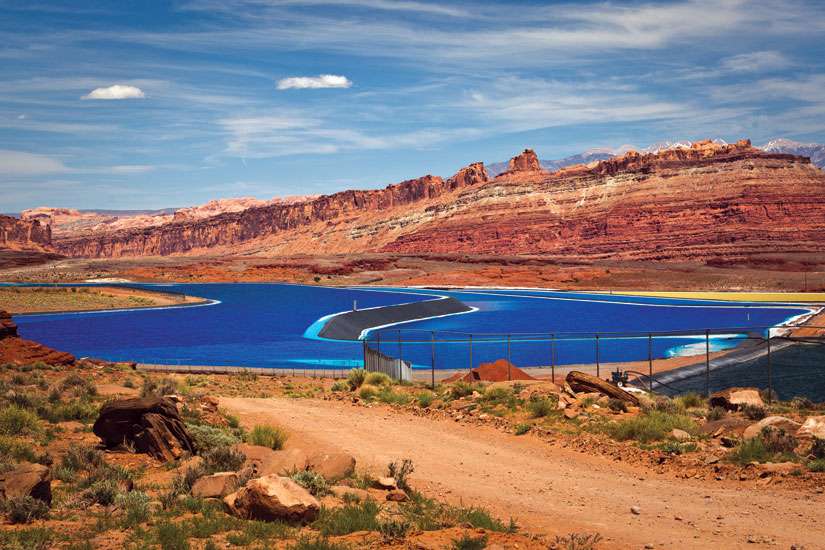The community of 95 Catholic sisters were asking the company, currently valued at $14.7 billion on the Toronto Stock Exchange, to undertake a human rights study of its operations in the Western Sahara. The proposal garnered just 6.7 per cent of the votes at the 2015 AGM, but it attracted support from 31.6 per cent of the outstanding shares — including the votes of major institutional investors this year.
The sisters’ motion was backed by the British Columbia Investment Management Corporation, which handles pension funds for BC public servants, the Canada Pension Plan Investment Board and the Ontario Teachers’ Pension Plan among others — totalling 159,593,972 shares voting for the motion, versus 344,850,348 shares against.
As soon as the vote came in, senior PotashCorp managers came down onto the floor of the meeting to speak with the sisters and their supporters. The Sisters of Mercy had co-ordinated their efforts with mutual fund manager Oceanrock Investments and its Meritas Janzti Social Index funds. The campaign to bring in votes in favour was co-ordinated by SHARE, a labour-backed responsible investor and pension fund organization.
There have been very few investor-sponsored motions at annual general meetings that have outright won a vote for any motion that lacks management backing. But whenever a motion wins votes from more than 10 per cent of outstanding shares, boards of directors and senior executives sit up and take notice, said Sisters of Mercy general superior Elizabeth Davis.
The sisters already have the attention of PotashCorp’s major rival in the agricultural minerals business with a similar motion put to Calgary’s Agrium Inc.’s annual general meeting last year.
“A victory would be if both Agrium and Potash actually had the public, independent assessment of their human rights responsibilities with respect to sourcing phosphate rock in the Western Sahara,” Davis told The Catholic Register.
The Western Sahara has been on the United Nation’s list of “non-selfgoverning territories” since 1963, shortly after Generalissimo Franco’s Spain gave up on playing the colonial power in the region. Morocco filled in the gap when Spain left and currently exercises control over most of the towns and the stretch of Atlantic coast attributable to the region. But the Polisario Front has been seeking independence for the area and its administration. It’s claim is recognized by the African Union. Morocco , which has the backing of most of the Arab League, recently expelled 80 UN peacekeepers as tension are on the rise. Thousands of Western Sahara families live in refugee camps on the borders of the territory.
“I will be honest — I don’t think a human rights impact assessment is going to tell us much we don’t already know,” said Mining Watch Canada outreach co-ordinator Jamie Kneen. “If the UN has a whole string of resolutions on the situation, I don’t think we need to do more research.”
Rather than conduct another study — a process that may take years — Mining Watch would like Potash to simply withdraw until there is a recognized, stable government in the Western Sahara.
“Don’t buy from occupying military forces,” said Kneen.
But Davis doesn’t think the situation is quite so black and white.
“We can’t expect a company like Potash to take any responsibility for the political situation that’s there,” she said. “But what they can take responsibility for is ensuring that their involvement is not adding any further complexity to the political situation and is actually supporting the people themselves in getting a bit closer to their own autonomy.”
The business case for undertaking a human rights assessment is “to protect the company from reputational and operational risk,” according to SHARE.
Much of Canada’s mining community recognizes those as real risks, even if they are hard to quantify, said Mining Association of Canada vice president of sustainable development Ben Chalmers. He praised the sisters for their positive engagement at the Potash AGM.
“It’s a fairly constructive avenue to take, to take a position in a company and then engage with them to get them to take action if you don’t agree with the direction they’re taking,” Chalmers said.
Human rights assessments — farmed out to third party experts and made available publicly — have become a preferred strategy for Canadian mining companies with investments in conflict zones.
An independent and transparent assessment is essential in the Potash case, said Davis.


